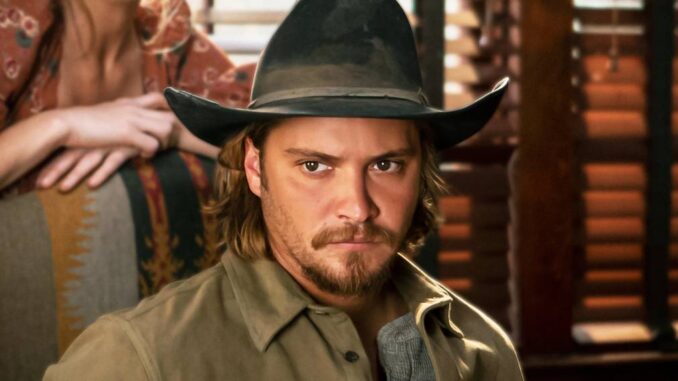
Yellowstone's Most Anticipated Spinoff Has To Avoid Making This Massive Mistake: The Mirage of Western Authenticity
The Dutton family's saga, a sprawling tapestry woven with betrayal, land disputes, and the enduring allure of the American West, has captivated audiences. Yellowstone, the flagship series, launched a franchise empire, and with each new iteration, anticipation builds. However, the most anticipated spinoff, whatever its title may be, stands at a critical juncture. To truly succeed, it must avoid falling into the trap that has plagued many a Western-themed project: the mirage of Western authenticity. This isn't about historical accuracy in costumes or dialogue. It's about a deeper, more insidious form of inauthenticity – the romanticized, often sanitized, portrayal of the West that ignores the complex realities beneath the myth.
Yellowstone, despite its success, has often flirted with this mirage. It presents a world where rugged individualism reigns supreme, where the Duttons are simultaneously ruthless protectors of their legacy and flawed heroes fighting against the encroaching modern world. While compelling, this narrative often glosses over the historical injustices that paved the way for the Dutton empire, the displacement of Native Americans, and the environmental consequences of ranching on such a grand scale. The audience is left with a vision of the West as a place of untamed beauty and heroic struggle, a vision that conveniently obscures the inconvenient truths.
This is the massive mistake the new spinoff must avoid. It cannot simply offer more of the same, another helping of romanticized Western mythology. Instead, it needs to delve deeper into the complexities of the West, confronting the historical realities that shaped the region and the ongoing struggles faced by its diverse inhabitants.
One crucial element is the portrayal of Native American communities. Too often, they are relegated to supporting roles, providing mystical guidance or serving as antagonists in land disputes. The spinoff has the opportunity to give voice to the indigenous people who were dispossessed of their lands and continue to grapple with the legacy of colonialism. It can explore the challenges they face in preserving their cultures, reclaiming their sovereignty, and navigating a world that often ignores their existence.
Beyond the Native American experience, the new series could explore the economic realities of the modern West. Ranching, while romanticized, is a demanding and often unsustainable way of life. The spinoff could delve into the struggles of small ranchers, the impact of corporate agriculture, and the environmental consequences of land management practices. This would move beyond the Duttons' privileged position and offer a more nuanced perspective on the economic realities faced by ordinary people in the West.
Furthermore, the spinoff could examine the changing demographics of the region. The West is not a homogenous landscape populated solely by cowboys and ranchers. It is increasingly diverse, with growing Hispanic, Asian, and other minority communities. Their stories, struggles, and contributions are often overlooked in traditional Western narratives. By incorporating these diverse perspectives, the spinoff could paint a more accurate and compelling picture of the West's vibrant and evolving landscape.
Imagine a spinoff that features a Native American lawyer fighting to protect tribal lands from development, or a Hispanic ranching family struggling to maintain their traditions in the face of economic hardship, or an Asian-American entrepreneur building a sustainable business in a small Western town. These stories, grounded in real-world experiences, would offer a fresh and authentic perspective on the West, moving beyond the tired tropes and romanticized clichés.
The key is not to abandon the elements that make the Yellowstone universe appealing – the sweeping landscapes, the familial drama, the sense of adventure. Instead, the spinoff must infuse these elements with a deeper understanding of the historical and contemporary realities of the West. It must be willing to challenge the romanticized myths and confront the inconvenient truths.
By avoiding the mirage of Western authenticity and embracing the complex realities of the region, the most anticipated Yellowstone spinoff can not only carve its own unique niche but also contribute to a more nuanced and meaningful understanding of the American West. It has the potential to be more than just entertainment; it can be a platform for exploring the enduring legacy of the West and the challenges facing its diverse inhabitants. The opportunity is there. The question is, will it be seized?
